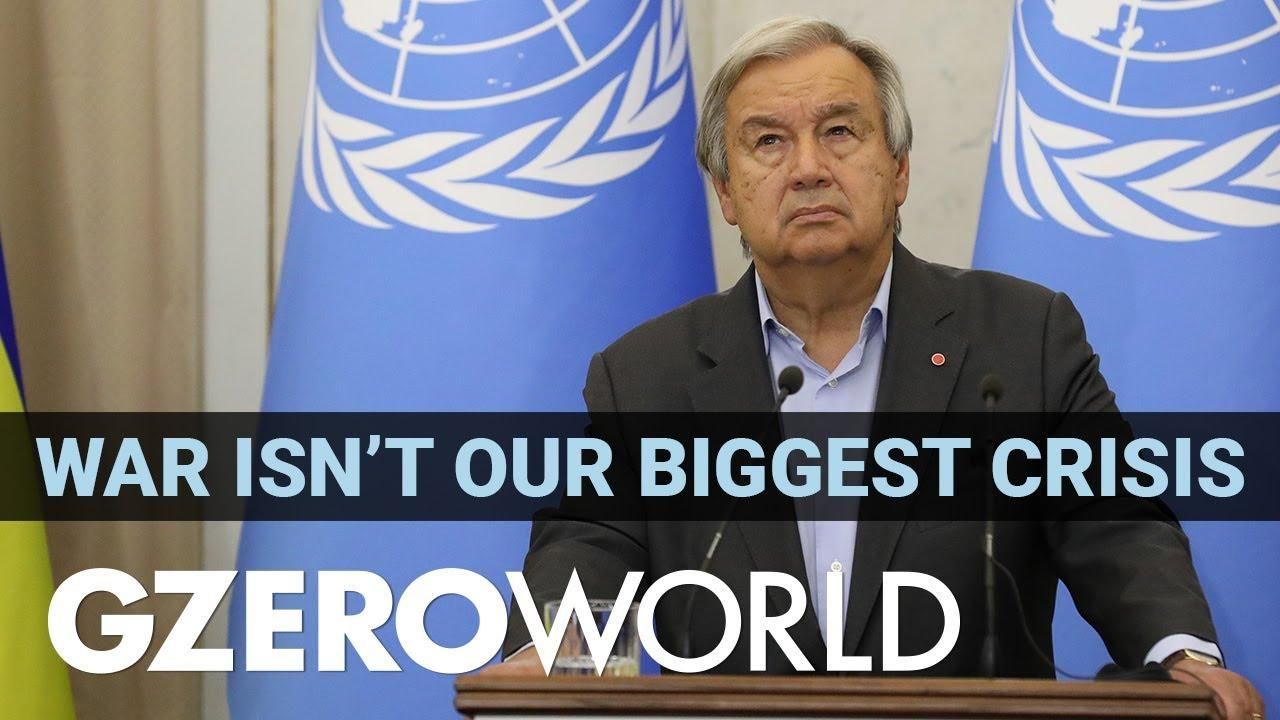
The UN's blueprint for making the world a better place is on life support. The pandemic wiped out years of progress on the Sustainable Development Goals, and right now there's no way they'll be met by 2030.
Secretary-General António Guterres has a message for world leaders converging in New York for the annual UN General Assembly: We need to rescue the SDGs.
But Guterres (and the international community) still has a lot more on their plate. On GZERO World, he warns that we may run out of food next year if the deal to get Ukrainian grain shipments out is not extended to Russian fertilizer.
Still, the UN chief laments that we got here because Russia invaded with impunity — and he worries that'll embolden more countries to become more aggressive amid a deeply divided geopolitical environment.
Also, what happened to the idea that the world was about to fall off the climate cliff? Guterres has some new thoughts on this too.
- Education's digital revolution: why UN Secretary-General António ... ›
- Guterres on virtual UNGA: “Huge loss in efficiency” for diplomacy ... ›
- UN Chief António Guterres: nations no longer trust each other ... ›
- An interview with UN Secretary-General António Guterres - GZERO ... ›
- Microsoft president Brad Smith has a plan to meet the UN's goals - GZERO Media ›
- Who can solve the world's "emergency of global proportions"? - GZERO Media ›
- Inequality isn't inevitable - if global communities cooperate - GZERO Media ›
- UN Chief: Urgent global problems can't be fixed until Ukraine war ends - GZERO Media ›
- UN Chief António Guterres on mounting global crises: "Hope never dies" - GZERO Media ›